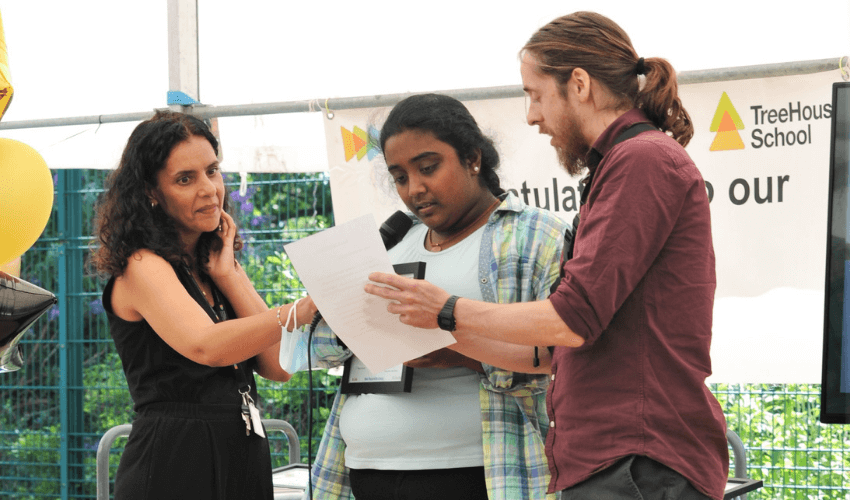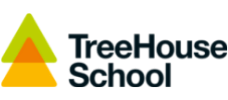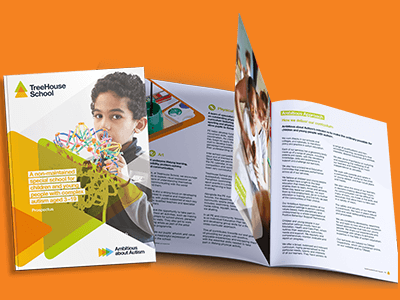
TreeHouse School offers a three-year Programme for pupils aged 16-19. Pupils can progress through TreeHouse School to the sixth form, or they can join the sixth form from age 16 plus from other settings.
Curriculum framework
The curriculum is based on the SEND Preparing for Adulthood outcomes. Our curriculum reflects the Preparing for Adulthood agenda and is designed to meet the needs of individual learners through practical learning activities that will enable them to increase their independence. The programme incorporates individual learning objectives that link to pupil’s Education, Health, and Care (EHC) plan outcomes and the Preparing for Adulthood curriculum. The sixth form curriculum has an embedded approach to English and Maths to make learning meaningful and contextualised, as appropriate to each student's ability and aspirations, and there is also an option to gain entry-level qualifications in functional skills. There are four pathways that are included in the curriculum:
- Work-related learning & enterprise
- Independent living
- Friends, relationships and community
- Health and wellbeing.
Functional skills – English and Maths
All pupils in the sixth form work towards English and Maths targets. These targets are embedded across the curriculum so that they are taught in a functional way and generalised across a variety of settings. There are opportunities for some pupils on the formal pathway to sit functional skills exams and gain formal qualifications.
PHSE
PHSE in the Sixth form enables pupils to understand the importance of and practical application of physical and mental wellbeing. It also includes relationship and sex education, equality and diversity education and a focus on individual transition plans.
Individualised curriculums
We have pupils of all abilities at TreeHouse School sixth form. In order to meet the needs of all our pupils, we have developed three pathways. Every pupil’s individual learning needs are carefully considered to ensure that they are placed on the correct pathway. Through termly assessment, pupils' progress and pathways are reviewed. These pathways are described below:
Pre-formal
Pupils on the pre-formal curriculum pathway would previously have been assessed at P level 4 and below. All pre-formal pupils have autism and severe learning disabilities. Pre-formal pupils in the sixth form continue to access the Preparing for Adulthood curriculum through TreeHouse experiences as referred to in our whole school curriculum. These are adapted to make sure that the experiences are age-appropriate and relate to the Pathways to Adulthood themes.
Semi-formal
The semi-formal curriculum is relevant for pupils who can access the four curriculum pathways in a practical way. These pupils would have previously been assessed as P5–P8. They would have been working within the pre-key stage standards. They will learn and apply knowledge and skills in different contexts and practical situations.
Formal
The formal curriculum is for pupils who have autism and mild to moderate learning difficulties. These pupils often have spikey profiles and are typically working below their mainstream peers. These pupils are typically working at entry levels 1,2 and 3.
The sixth form aims to be a holistic experience for pupils that help prepare them for adult life. Due to the nature of this, some skills-based learning crosses over between themes and pathways. This is represented below with numbers represented where the main cross-overs are experienced within the curriculum.
Key
1: Independent living skills (ILS
2: Friends, relationships, and community
3: Health
4: Work-related learning and enterprise
5: Functional skills (English and Maths)
6: PHSE
Pre-formal curriculum
| ILS | Friends, relationships, and community | Health | Work-related learning and enterprise |
| Pupil Voice | Making decisions about how to spend leisure time | Healthy foods | Enterprise |
| Domestic Skills | Developing friendships and social skills | Yoga and relaxation | |
| Recycling and the environment | Community skills | Sports and physical exercise | |
| Shopping | |||
| Travel training | |||
| Meal preparation |
Semi-formal curriculum
| ILS | Friends, relationships, and community | Health | Work-related learning and enterprise |
| Personal hygiene (3) | Taking part in the community (4,5) | The importance of physical health | Participating in an enterprise project (5) |
| Being safe in your home | Personal identity (6) | Participating in physical activities (5) | Understanding roles within an enterprise project (2,5) |
| Meal preparation | Expressing choices about how to spend leisure time (5) | Mental health and wellbeing (6) | Strengths and interests (5) |
| Shopping skills (4,5) | Travel training (4) | Personal care and hygiene (1) | Choices and pathways (6) |
| Following instructions (4,5) | Developing friendships / social skills (5) | Self-regulation (1) | CV writing/digital CVs (5) |
| Using money (5) | Familiarisation with the local area (4,5) | Diet and food variety (1) | Travel training (with supervision) (2) |
| Understanding different types of living arrangements (6) | Knowing where to go for help (1,5) | Making health choices (1,5) | Rights and responsibilities (5,6) |
| Domestic skills | Healthy/unhealthy diets (1,5) | Volunteering work placements (5) | |
| Supervised travel training (4) | Expressing pain and health issues (1,5) | Career interviews (5,6) | |
| Self-image (6) | Understanding the concept of time - start/finish (5) | ||
| Puberty and sexual health (2,6) |
Formal curriculum
| ILS | Friends, relationships, and community | Health | Work-related learning and enterprise |
| Personal hygiene (3) | Understanding your right to take part in the community (4) | The importance of physical health (5) | Participating in an enterprise project (5) |
| Being safe in your home | Personal identity (6) | Physical education | Understanding roles within an enterprise project or workplace (2) |
| Meal preparation | Making decisions about how to spend leisure time (5) | Mental health and wellbeing (6) | Strengths and interests (5) |
| Understanding and using money (5) | Travel training (4) | Personal care and hygiene (1) | Choices and pathways (5,6) |
| Managing bills (5) | Developing friendships / social skills (5) | Self-regulation (1) | CV writing (5) |
| Understanding different types of living arrangements (6) | Knowing the local area (4) | Diet and food variety (1) | Travel training (2) |
| Domestic skills | Knowing where to go and who to ask for help (1) | Making healthy choices (1) | Rights and responsibilities in the workplace (5,6) |
| Home management | Use the emergency services (1) | Understanding the difference and consequences of a healthy/unhealthy diet (1,5) | Volunteering, work placements, supported internships (5) |
| Travel training (4) | Understanding the criminal justice system (5,6) | Expressing pain and health issues (1,5) | Career interviews |
| Making short trips independently (4,5) | Consent and keeping yourself safe (5,6) | Self-image (6) | Time telling (5) |
| Managing social media and other technology (4,5) | Valuing diversity in the community (5,6) | Puberty and sexual health (2,6) | Understanding money in a workplace (5,6) |
| E-safety (2,4,5) | Forming and maintaining respectful relationships (5,6) | Switching screens off / the importance of sleep (1,6) | Undertaking formal exams (5) |
| Relationship and sex education | Managing own health needs/medication (6) | ||
| Managing risk and personal safety (1) |


